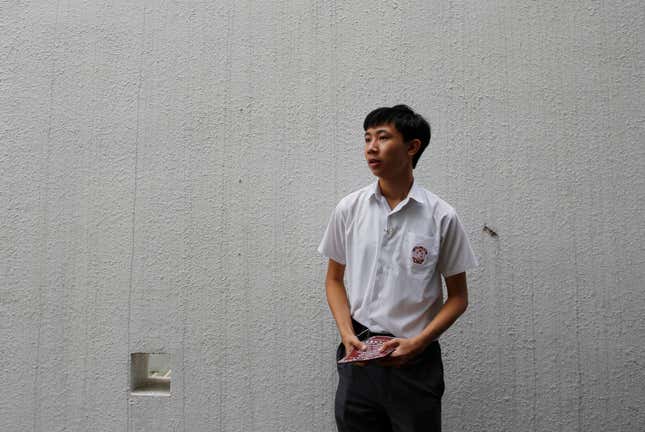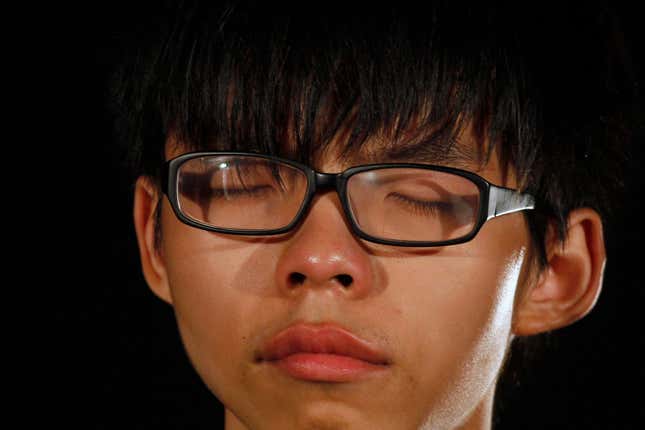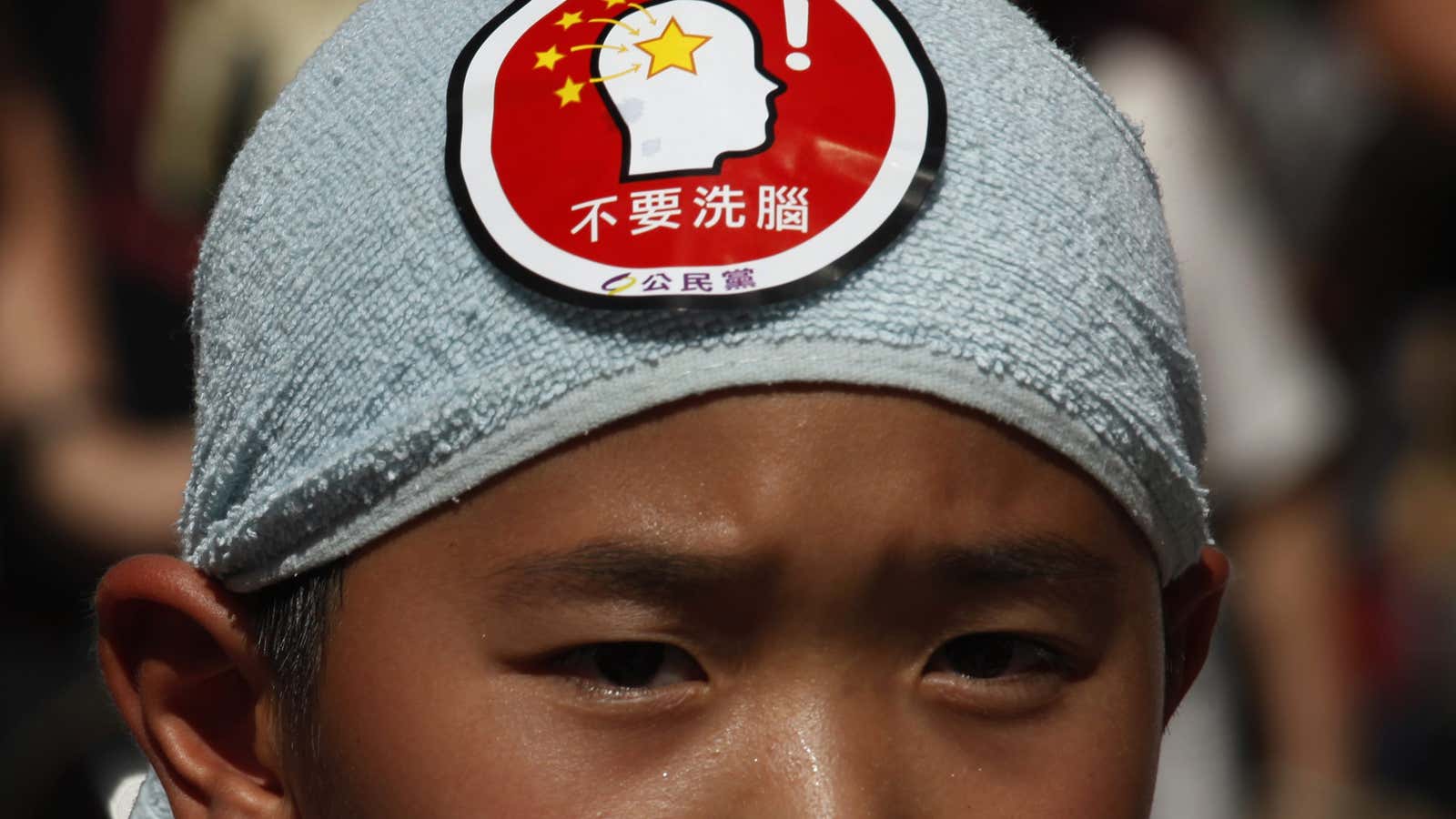In 2012, tens of thousands of people in Hong Kong took to the streets for days to resist an attempt by the government to implement what some saw as “brainwashing” patriotic education in schools. The government backed down. Now it wants to try again.
Carrie Lam, the new leader of Hong Kong who takes office on July 1, said this week that she wants to teach children from kindergarten the message that “I am Chinese” as a way to extinguish ideas of independence among Hong Kong’s youth. Making a dedicated Chinese history class a compulsory part of the secondary school curriculum is also a possibility, she said.

As relations between Hong Kong and mainland China have only become more fraught since 2012—with some young people even advocating independence as a possible future for the city—it is clear that the incoming administration in Hong Kong hasn’t yet given up the idea of trying to create a generation of patriots from a young age. The task is taking on extra urgency as the city celebrates its 20th anniversary of return to Chinese rule from British this year.
Joshua Wong, now 20, is best known internationally as the face of the 2014 Umbrella Movement protests, but in Hong Kong he’s known just as well for being the leader of student protest group Scholarism, which has since disbanded. Scholarism spearheaded the 2012 anti-patriotic education protests, and gave rise to other well-known faces of the 2014 protests. Wong, who was just 14 then, went on a hunger strike with a group of other teenage students.
Hong Kong classrooms have been an unrelenting battleground since then. Outgoing chief executive Leung Chun-ying even said that the mere discussion of Hong Kong independence in classrooms should be banned outright, and that talking about it was as bad as taking drugs. That of course only served to fan the flames further, with two young lawmakers who openly espoused pro-independence views successfully winning seats in the city’s legislature late last year—only to be booted by Beijing soon after.

In an important meeting of China’s parliament earlier this year, top Chinese officials including Premier Li Keqiang warned against any talk of independence in Hong Kong, suggesting that Beijing may be growing impatient with repeated failed attempts at quashing such wayward behaviour from young people in the city.
Hong Kong’s legislature passed a non-binding motion late last year to teach Chinese history as an independent subject, separate to general history. Some teachers and liberal politicians fear that the teaching of Chinese history could be biased, with insufficient emphasis placed on the negative aspects of China’s history.
Lam, who was selected in voting by a small group of 1,200 people to be Hong Kong’s new leader, comes to power on a platform of pledging to assuage deep political and economic divisions in the city. In a recent interview with the BBC, she even acknowledged that there is a “feeling of disconnect” between young people and the government. But her recent comments will worry many that “brainwashing” could return to Hong Kong classrooms, and could well reignite one of the major flashpoints in the tensions between Hong Kong and Beijing.
